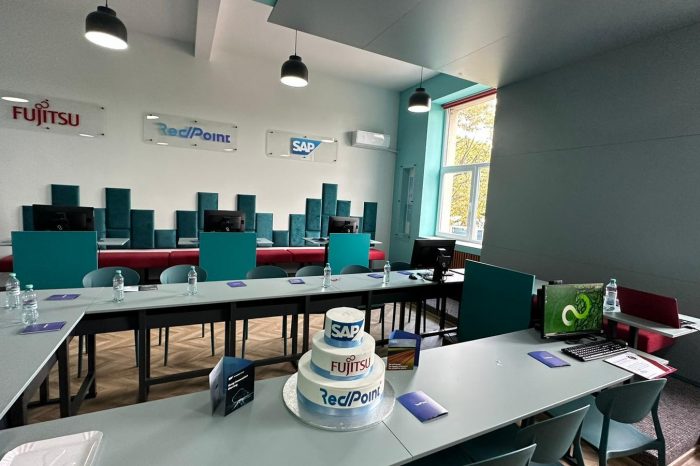OVES Enterprise: Banks increase investments in digitization by up to 30%

• The share of fintech clients has risen to over 50% in the OVES Enterprise portfolio, compared to 15% at the beginning of the year
• User interface, user experience, speed and security are the aspects most often taken into account by banking institutions in the digitization process
The banking sector in Romania has become, in the last 9 months, one of the most effervescent fields that are being digitized. Banks and fintech companies have increased investments in digitization by up to 30%, according to an analysis by OVES Enterprise, a Romanian software developer company.
User interface and user experience are at the top of banks’ concerns, most institutions wanting to improve applications (mobile and desktop), to make them more attractive, more intuitive and easier to use. Since the beginning of the pandemic, banks have bet on the fact that users will spend even more time in front of screens and that many transactions will move online. Thus, they focused on the redesign of the applications.
Security is also on the minds of banks as they look for new ways to identify vulnerabilities and prevent and limit cyber-attacks to help their customers not fall victim to phishing attacks in particular and in general , of any type of cyber attack.
Speed, especially on bank transfers, is another factor that prompts banks to invest in the development of new applications that allow money transfers at a higher speed.
“If at the beginning of the year, about 15% of OVES Enterprise’s clients were from the fintech field, now this share has risen to over 50%. On the one hand, the segment has grown a lot, but the moment coincided with a period in which we accumulated more experience in this sector, thus managing to attract more and more important customers”, says Mihai Filip, CEO of OVES Enterprise, noting that all banks are investing in digitization to keep up with the competition. “An example here comes from the pandemic period, when some banks blocked development budgets and others continued investing, and when the restrictions were lifted, those who invested had a big advantage over those who waited, winning customers and market share. I think the lesson has now been learned, and even if we are at the beginning of the recession, all financial institutions, not just banks, are trying to get as big a budget as possible for development.”
The increase in the number of development projects from financial institutions brings more stability for software developers in Romania, in the context in which many companies in other fields are restricting or closing development and innovation projects.
As a rule, according to representatives of OVES Enterprise, projects in the fintech area are carried out over a long period, even for several years. A lot of work is being done to migrate applications from older technologies that they were written in, perhaps 10 years ago, to newer, more modern, more secure technologies. And here there are several verticals: the old-to-new migration part, the maintenance part of the current systems, the innovation part, etc.
And the stability and security offered by such projects offer an additional argument to programmers who are faced with the decrease in demand and the redirection of projects from the private sector from Romania and the region to other countries. Also, the innovation part, specific to a growing number of projects, even in the banking sector, often provides a big enough challenge so that developers don’t get bored and always have something new to learn.
OVES Enterprise is a Romanian software development company, established in 2015 in Cluj-Napoca. Starting in 2019, OVES’ strategy included offering more complex software development services for projects in the automotive, eCommerce, fintech, telecom, international government institutions, etc., the company becoming a technological partner for complex and technologically sophisticated projects. Currently, 80% of the company’s turnover is generated by projects outside Romania, which integrate new technologies in the field of artificial intelligence and big data. OVES Enterprise currently has 107 employees and offices in Romania, Germany and the United Arab Emirates.
















